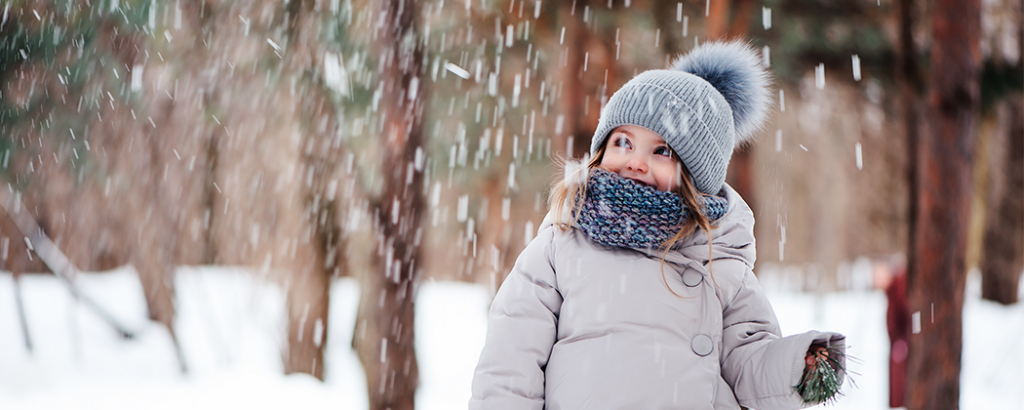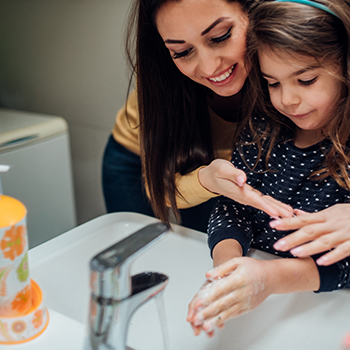
Winter is here in the Midwest and for many, that means worsening asthma symptoms. There are two main reasons for winter asthma flare-ups: More frequent upper respiratory infections, and cold, dry air. Both can trigger or worsen asthma symptoms.
Asthma is a lung condition that makes it hard to breathe. While experts aren’t exactly sure why some people develop asthma, they do know it’s oftentimes a combination of environmental factors and genes. Asthma triggers are things that make asthma worse. Some examples of triggers are: Illness, cold air and smoke exposure.
This winter, keep your child healthy and safe from asthma flare-ups by knowing more about what triggers their asthma.
What does the flu have to do with my child’s asthma?
Influenza is on the top of our mind in the winter, especially for kids with asthma. In fact, asthma is the most common medical condition among children who are hospitalized with the flu according to the Centers for Disease Control and Prevention (CDC).
Because people with asthma often have swollen, sensitive airways, they are more likely to develop serious health complications such as pneumonia if they do come down with the flu. Plus, the influenza virus in the lungs can trigger asthma symptoms even if their asthma is mild or symptoms are well-controlled by medication.
Here are two ways you can help prevent your child from getting the flu:
Wash hands frequently.
Good hand washing is the first line of defense against the spread of many illnesses. It is by far the best way to keep kids from getting sick. Teach your children how to wash their hands properly with soap and water to help stop the spread of germs. Even when kids follow proper hand hygiene, it’s best to encourage them to keep their hands away from their face.
Get the flu shot.
If your child has asthma and gets the flu, the illness could be much worse for them. They best way to protect them from this is to get the flu shot. The flu shot is safe and effective. Although there is no guarantee that the vaccine will prevent 100 percent of flu symptoms, it can limit the severity and duration of the infection. It may even reduce the chances your child will need to be hospitalized due to the virus.

Ways to avoid cold-weather asthma flare-ups
Wear the right clothing outside.
Make sure your child wears a scarf or neck-warmer over their mouth and nose when it’s cold outside to warm and humidify the air they breathe.
IS YOUR CHILD’S ASTHMA UNDER CONTROL?
Always have quick-relief medications on hand.
Have your child take a preventive dose of their quick-relief medicine before heading outside. It can also be used as needed during an asthma flare-up. These medications work fast, but the effect isn’t long-lasting. Quick-relief medicines are used to calm a flare-up in the moment, they do not to cure asthma.
Other ways to avoid asthma flare-ups
Eliminate smoke exposure.
Never allow smoking in the home or car as this can cause asthma flare-ups. If you smoke, consider quitting, especially if your child has asthma. Secondhand smoke can harm the lungs, cause long-term breathing problems and make existing breathing problems worse.
Create an asthma action plan.
No matter what the season, you should always know what to do if your child’s asthma symptoms flare up. Having an asthma action plan is very important. You can work with your provider to come up with an asthma treatment action plan that is specifically tailored just to your child.